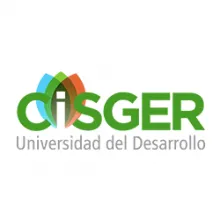CiSGER has a cross-disciplinary focus on sustainable and global social development through evidence-based decision-making and feasible and practical solutions. Our center is the first in Chile to focus exclusively on Sustainability Science.
CiSGER combines various disciplines with experts providing experience and knowledge from the fields of environmental engineering, the environmental sciences, economics and law, and academic collaboration with several prestigious international institutions.
CiSGER's mission is to contribute to national and international development in sustainability through the development of basic and applied research, a necessary approach in the context of climate change where strategic resource management is key in achieving genuine sustainable development.
The key focus areas of CiSGER are:
- Understanding the interrelation between resource use, environmental impacts, and social development
- Generation of useful data to analyze environmental data and address relationships between variables
- Development of engineering solutions to address social and ecological issues
- Growth of human capital through education, development of experience and international relations
The center combines experience from each discipline of our research team to produce analysis on the relevant topics, using our laboratory equipment and our partner institutions' resources to develop solutions and disseminate the results widely.
CiSGER's overall objective is to understand the relationship between Engineering, Society and Sustainability for the generation of solutions and tools that contribute to the advancement of sustainable social development. The center generates scientific knowledge of the highest level and the formation of public policy proposals, allowing more informed decision-making in agriculture, mining, public works, economy and finance, environment, transport, and energy.
Priorities as a partner of the Global Partnership for Sustainable Development Data
Since 2015, CiSGER has increasingly received attention from the State, universities, and organized civil society, with whom we have embarked on different projects as research partners. Due to increasing complexity, our research areas, the research is conducted by laboratories and initiatives regarding the field of study of its associate researchers.
One of them is the Knowledge Discovery Lab (KDL), an interdisciplinary research group to explore and model complex systems. We are looking for understanding the causal dependencies from observational and experimental data by applying a wide variety of concepts and techniques, including (but not limited to): machine learning, data mining, probabilistic graphical models, statistical programming, design of experiments, complex adaptive systems, network analysis, statistical inference, optimization, and dynamical systems.
These tools are applied to practical tasks in multiple areas such as the analysis of scientific data (for instance from sensors, financial-economic indicators, agriculture satellite and drone images, etc.), complex networks and multi-networks, and big data in disciplines such as Astro-statistics, Neurosciences, Genomics, Social Networks, Finance-Marketing-Economics, Sensors and IoT, Sustainability + Water + Security + Natural disasters, among others. Its mission is to provide a space for the promotion of scientific education and the "sciences of knowledge discovery” through the application of physics, mathematics, and computer sciences in a broad spectrum of areas and topics.
KDL seeks to understand complex systems conformed by many non-linear interacting parts, adopting a holistic approach that explicitly addresses the connections between phenomena and central trade-offs underlying genuinely creative solutions.
We are currently working on how the SDGs can drive welfare using data analytics.
